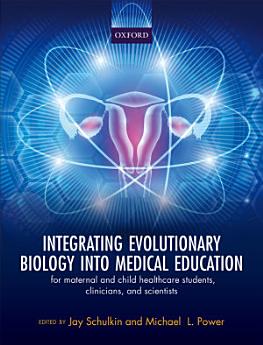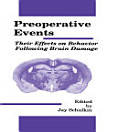Integrating Evolutionary Biology into Medical Education: for maternal and child healthcare students, clinicians, and scientists
Jay Schulkin · Michael Power
Dec 2019 · Oxford University Press
Ebook
288
Pages
family_home
Eligible
info
reportRatings and reviews aren’t verified Learn More
About this ebook
Clinicians and scientists are increasingly recognising the importance of an evolutionary perspective in studying the aetiology, prevention, and treatment of human disease; the growing prominence of genetics in medicine is further adding to the interest in evolutionary medicine. In spite of this, too few medical students or residents study evolution. This book builds a compelling case for integrating evolutionary biology into undergraduate and postgraduate medical education, as well as its intrinsic value to medicine. Chapter by chapter, the authors - experts in anthropology, biology, ecology, physiology, public health, and various disciplines of medicine - present the rationale for clinically-relevant evolutionary thinking. They achieve this within the broader context of medicine but through the focused lens of maternal and child health, with an emphasis on female reproduction and the early-life biochemical, immunological, and microbial responses influenced by evolution. The tightly woven and accessible narrative illustrates how a medical education that considers evolved traits can deepen our understanding of the complexities of the human body, variability in health, susceptibility to disease, and ultimately help guide treatment, prevention, and public health policy. However, integrating evolutionary biology into medical education continues to face several roadblocks. The medical curriculum is already replete with complex subjects and a long period of training. The addition of an evolutionary perspective to this curriculum would certainly seem daunting, and many medical educators express concern over potential controversy if evolution is introduced into the curriculum of their schools. Medical education urgently needs strategies and teaching aids to lower the barriers to incorporating evolution into medical training. In summary, this call to arms makes a strong case for incorporating evolutionary thinking early in medical training to help guide the types of critical questions physicians ask, or should be asking. It will be of relevance and use to evolutionary biologists, physicians, medical students, and biomedical research scientists.
About the author
Dr. Schulkin is a research Professor in the Department of Neuroscience at Georgetown University Medical Center and the Department of Obstetrics and Gynecology at the University of Washington. Dr Michael L Power is an Animal Scientist at the Smithsonian Conservation Biology Institute. Recently, his research has expanded to include investigations of hormones and other bioactive molecules in milk and the milk microbiome. He is the curator of the Milk Repository at the Smithsonian, which contains milk samples from over 200 mammals.
Rate this ebook
Tell us what you think.
Reading information
Smartphones and tablets
Install the Google Play Books app for Android and iPad/iPhone. It syncs automatically with your account and allows you to read online or offline wherever you are.
Laptops and computers
You can listen to audiobooks purchased on Google Play using your computer's web browser.
eReaders and other devices
To read on e-ink devices like Kobo eReaders, you'll need to download a file and transfer it to your device. Follow the detailed Help Center instructions to transfer the files to supported eReaders.






